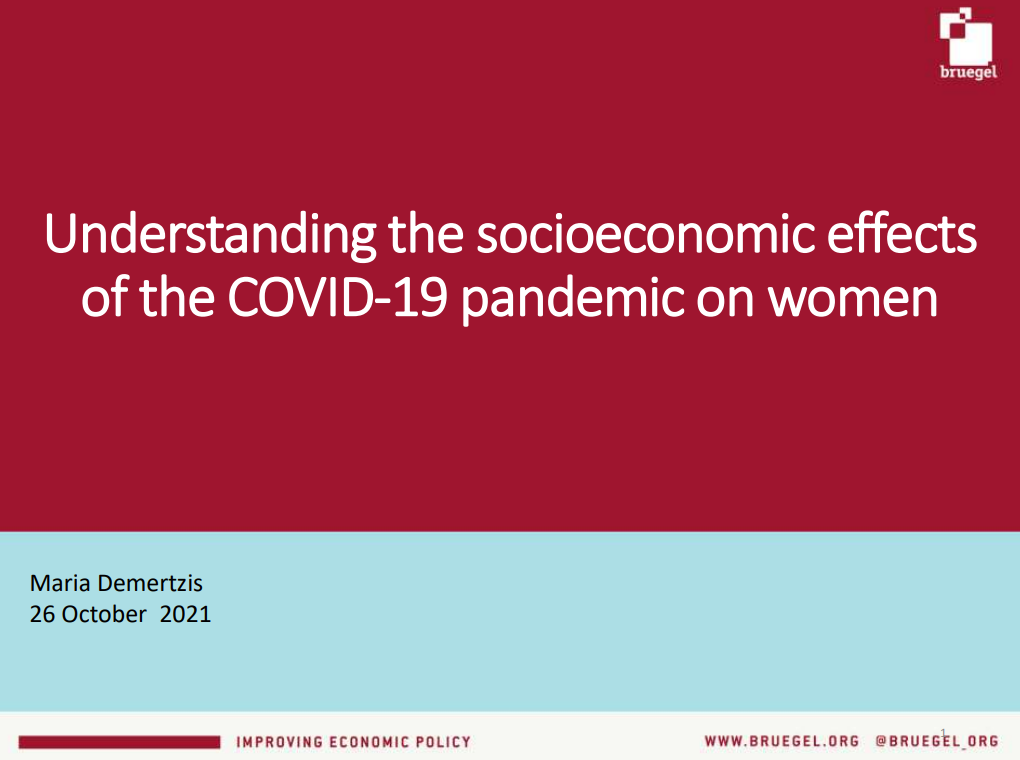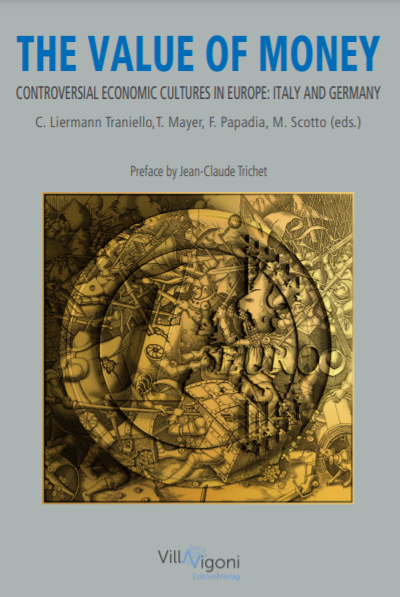Blog Post
Follow-up: The German minimum wage debate
Since our last blog post on the German minimum wage debate, there is now renewed interest in the topic. What are the prospects of introducing a nationwide minimum wage, given the Federal elections results?
Related post: ‘A review on Germany’s minimum wage debate‘
After the last Bruegel Blog post on the German minimum wage debate on 7 March there is yet a renewed interest in the topic. What are now the prospects of an introduction of a nationwide minimum wage, given the Federal elections results? The debate over the introduction of a legal minimum wage has gained importance ahead of coalition talks with Merkel’s potential coalition partners demanding a legal minimum of EUR 8.50 per hour. Beyond the question whether a minimum wage may now be politically feasible, understanding the key points of the debate appears important to understand the recent developments in the debate.
Germany is one of the few EU countries lacking a nationwide minimum wage. According to Patrick Bernau, the lack stems from two principles, namely the principle of collective bargaining – wages are determined by unions and employers – and the principle of ordoliberalism (Ordnungspolitik) according to which minimum wages can only be useless or harmful.
Yet, there has been renewed interest in the topic. According to Patrick Bernau there are essentially three reasons for the “new love for the minimum wage”. First, the Hartz-reforms (2003-2005) created a lot of low-wage employment. As a consequence, the new mantra of the labour market became “Jeder muss von seiner Hände Arbeit leben können.” i.e. it is not possible that employed people need state aid. Second, the unions are losing members, which makes the bargaining of higher wage rates more difficult. Unions are now demanding the state to prohibit cheap wages in order to create downward pressure on the bargained wage rates. Third, there is no consensus among economists whether a minimum wage really jeopardizes employment. Moreover, signs of an economic recovery reanimate the debate.
Currently, minimum wages exist in industries in which labour unions have been strong enough to forge an agreement with employers. Chancellor Angela Merkel was originally opposed to a minimum wage, but campaigned on the idea that empoyers and the unions decide on minimum pay on an industry-by-industry basis, tailored to their specific needs. Practically, the government used existing laws to introduce minimum wages in more and more industries. The government then endorses those deals, making them legally applicable to all workers in a certain industry. Since 2009, the conservative-liberal government (CDU/CSU-FDP) endorsed in total seven deals, there are 12 in total (see here for details). The last industry-specific minimum wage has been signed off on September 18 by Merkel’s Cabinet during the last meeting before the elections. The deal for stonemasons foresees a minimum pay of at least EUR 10.13, adding to agreements for cleaners, construction workers and others. The next industry concerned will be that of coiffeurs. In April this year, employers and unions agreed on a minimum wage of EUR 8.50 per hour, applicable up from 2015.
Ahead the Federal elections, CDU/CSU politicians adopted a more favorable position regarding minimum wages. At a conference of the Federation of German Industries (BDI) in June Merkel said that she didn’t think that it was right that people working full-time still needed to apply for welfare benefits to make ends meet. CDU Minister of Labour Ursula von der Leyen presented proudly the industry-specific minimum wages, underlining however that it’s “absolutely wrong” for politicians to fix minimum wages. She said that “experts, unions and employers should do it.”
A nationwide minimum wage is back on the agenda for the up-coming coalition talks, now that the FDP, categorically opposed to a nationwide minimum wage, has been voted out of both the government and parliament. The two potential coalition partners of Merkel’s CDU/CSU, the Social Democrats (SPD) and the Greens, are both demanding EUR 8.50 an hour, and the Left Party wants a minimum wage of EUR 10 an hour. According to the Welt the Social Democrats made the minimum wage a condition for the negotiations. The Left Party proposes to use the small red-red-green majority in the Federal parliament (Bundestag) to introduce a minimum wage. However, the SPD refuses to make any agreements before the forming of a government.
Introducing a nationwide minimum wage is a controversial topic among academics and economists. Jens Weidmann, President of the Bundesbank does not favor the introduction of a nationwide minimum wage. “It deteriorates the employment chances of the low-qualified and the permanently unemployed, and complicates the access to the labour market for those who do not have pronounced job-related skills.” he says according to the Handelsblatt. A minimum wage would involve the risk that companies hire less workers, and this would hurt those groups that should benefit from a minimum wage.
A study of the German Institute for Economic Research (DIW) by Karl Brenke and Kai-Uwe Müller shows that “a minimum wage would affect the distribution of income and balance wage inequalities in the low-wage sectors”.
On balance, however, the co-authors do not recommend the “abrupt introduction of a minimum wage of EUR 8.50 per hour”. Instead, they call for a lower minimum wage level of about EUR 7, which after an introductory phase could gradually rise over time. They do not believe that an increase in wages would significantly reduce poverty and inequalities in income. Average household income is less likely to rise at all as a majority of low-wage earners are working on a tax-free and part-time basis, with many of them just adding to the wage of a better paid husband or wife. An increase in their combined household income would mean higher income taxes, and subsequently the same or even less disposable income.
Moreover, they do not believe that a minimum wage can boost Germans’ average purchasing power: the total German wage sum would increase by only 3 percent.
Regarding the effects on businesses, they find that a minimum wage wouldn’t jeopardize the competitiveness of internationally orientated firms. However, smaller firms would be affected. Notably in the services sector, such as restaurants and call centers, a minimum wage of EUR 8.50 would increase total wage costs by up to 20 percent. These costs would be passed on to consumers.
Thus, the minimum wage would clearly come at a price: “No matter whether its lower employment, higher consumer prices or lower business profits, someone is going to pay the price”, Kai-Uwe Müller told the DW. The current minimum wage debate in Germany, suggesting a win-win situation for all, is misleading according to Müller. Nevertheless, the co-authors do not generally refuse minimum wages: “There is no clear proof that a minimum wage would lead to a loss in employment” says Brenke according to Spiegel Online. The research in this topic has recently advanced. While neoclassical models predict that a minimum wage disturbs the equilibrium between supply and demand, more recent models allow for other factors such as the stronger bargaining power of employers (e.g. due to regional immobility of workers). Karl Brenke told DW that “differentiation is the buzz word”. “In Britain, minimum wages are related to age and qualifications, while in the U.S. you have different wages in different regions.”
Patrick Bernau writes a minimum wage would change the definition of how much money you need to live from what you earn. Most politicians consider the unemployment benefit rates (Hartz-IV-Sätze) as the threshold of the minimum subsistence level (Existenzminimum). Yet, the level of the Hartz-IV-Sätze depends on how much low-wage earners earn and therefore the minimum wage level. According to Bernau, the introduction of a minimum wage would increase the minimum subsistence level and people earning the minimum wage would soon have again the impression that their earnings barely exceed unemployment benefits. What counts for them is uniquely the fixed difference between unemployment benefits and other income. Additional money cannot solve the poverty problem, he states.
Stefan von Borstel writes in the Welt that SPD, Greens and the Left Party preach the minimum wage as a cure-all against unemployment fraudsters, poverty, inequality, in brief as the programme for social justice. Not to forget the boost to the economy thanks to a minimum wage. According to the DIW study, a minimum wage would only satisfy the “sense of justice” of Germans. But is this “worth to gamble with existing jobs and employment chances of millions?” he asks.
Thomas Lobinger, Professor for Civil Law, draws attention to legal problems of a minimum wage. He says that it would be hardly compatible with the German Basic Law as it contradicts the Social State Principle. How to “explain to a worker that he loses his job, because his employer cannot pay EUR 8.50 per hour.” The State mustn’t shift the protection of decent existences to businesses. Moreover, he believes that the autonomy in wage bargaining would be significantly affected by a minimum wage.
Related post: ‘A review on Germany’s minimum wage debate‘
Republishing and referencing
Bruegel considers itself a public good and takes no institutional standpoint. Anyone is free to republish and/or quote this post without prior consent. Please provide a full reference, clearly stating Bruegel and the relevant author as the source, and include a prominent hyperlink to the original post.














